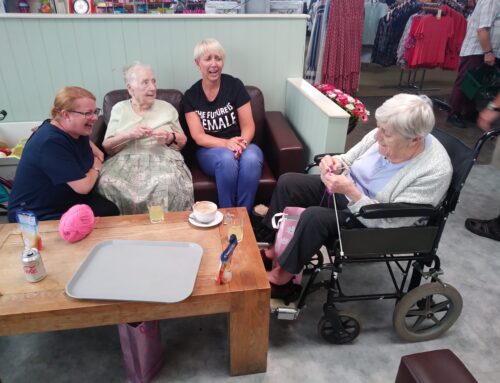The Guardian, in November last year, tells story of Jean. Jean works for a home care agency in the north of England. She starts work at 6.30 am, and completes 23 calls in 12 hours. She drives 20 miles between appointments, and is not paid for her travel time, and earns £64.80 before tax. Jean is on a zero hours contract. She does not know how many appointments she will have each week, and therefore how much she will be paid. Her list of appointments comes through on a Friday.
It is stressful work, she says, and she feels she has little support.
“It’s a lonely job…you are in the care on your own, you get to peoples houses and often face problems on your own. They tell you all of their worries and then you take them home. Often at night I’m tossing and turning worrying about them.” But Jean still loves her job.
Jean’s experience could explain why there is up to 40% turnover in home care. Yesterday I spoke to a manager of a large home care organisation in the south of England. She said that they lose 50% of their new recruits before their 6 month of employment. How close is Jean’s experience to Alan’s?
Michael Marmot, in his book ‘The Health Gap’ tells Alan’s story. Alan was a picker in a warehouse, and Michael described in detail his daily experiences of work and ends the story with this statement.
“It was as if his employers had taken everything we know about the damaging aspects of work, concentrated them in a syringe and injected them into Alan.” The damaging effects that he refers to are high demand with no control over the work task, high effort and little reward, social isolation at work, job insecurity and working antisocial hours.
I am not suggesting that every carer who works in home care experiences these damaging aspects, but I am sure many do, and it does resonate with Jean’s experience. In changing home care most of the focus is on the experience of people using the service, or on making efficiencies. Both of these are important, however we must consider the experience of the staff. If we don’t not only will turnover continue to be very high, but we are also building health challenges for the future. The challenge therefore is to create a different way of delivering support for people at home, that is truly person-centred, where they have choice and control, and delivered by an engaged, happy workforce.
There is a lot of interest in happy workplaces. It almost sounds frivolous to talk about happiness in home care. Ron Friedman, in his book ‘The Best places to Work’ talks about how meeting psychological needs are at the heart of employee engagement and wellbeing.
The psychological needs that he refers to are autonomy and relationships. It is clear that having choice and control matters to staff as well as people using services, and that having friends at work is critical to productivity and happiness. Jean has no autonomy over her work – she is told where to go and when, and for how long. She describes the work as lonely.
We care trying to build choice, control, and relationships into the DNA of Wellbeing Teams. Wellbeing Teams are small, neighbourhood, self-managed teams inspired by Buurtzorg.
For people who are supported at home
People choose what they want support with (their outcomes and priorities), how they want to be supported, when and where. We enable them to choose their team too, either through looking at the team’s one-page profiles or a 30 minute film of a team member introducing themselves. No more than four team members work with an individual, to provide consistency and to develop good relationships.
For team members
The team meets every week to share information, address any problems or issues and support teach other. Each team member has a buddy. The team shares the roles needed in a self-managed team together, and they choose the roles based on their strengths. Each person has a coach to support them to become confident in their role (for 3 – 4 months) and then the team has a coach to help them work well together. The team develops the rota/schedule together after the team meeting.
There are two Wellbeing Teams starting in Devon and Dumfries, and we will be learning from practice in how to deliver choice, control and focus on relationships.
Michael Marmot is compelling that we need a radical change in the way we think about health and society. This means not only ensuring that older people are supported well at home, but that the health and happiness of staff is critical too..




